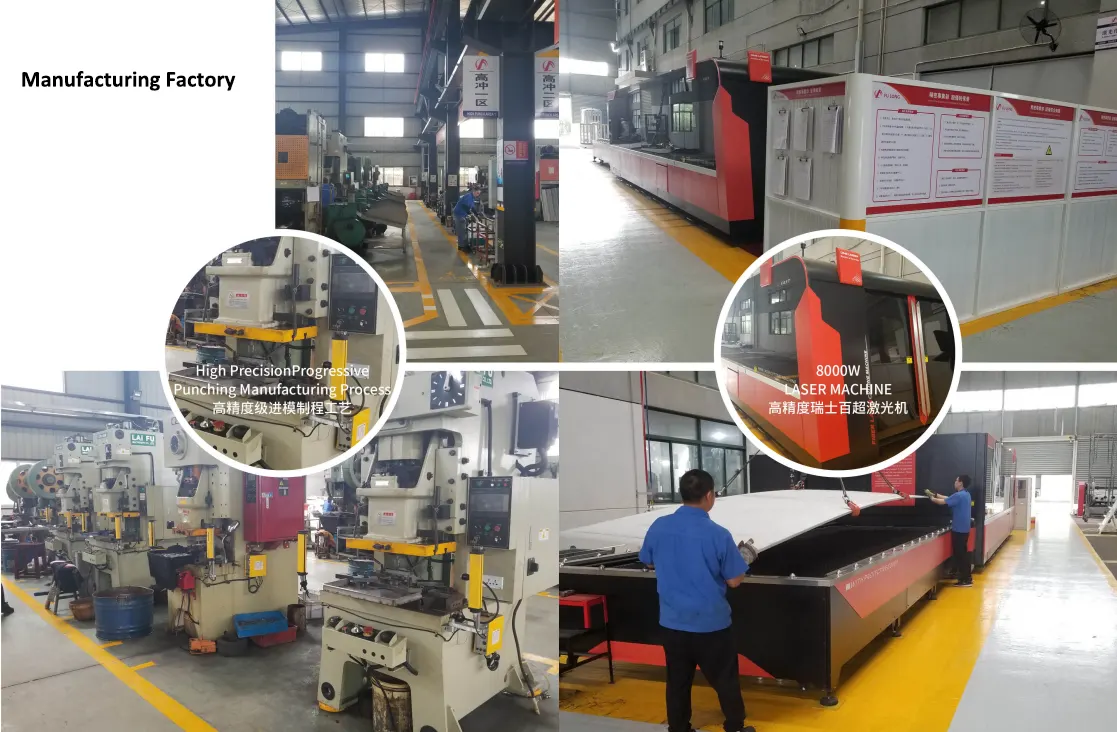As a professional stainless steel chain manufacturer, we offer a diverse range of chains, including the gripper chains specifically designed for fish processing equipment. In this blog post, we will introduce and describe the gripper chains in detail, explaining their design, features, and applications.
Definition and Function
Gripper chains are specialized chains designed for the food processing industry, specifically for fish processing equipment. These chains are responsible for carrying the fish to various processing stations while maintaining a firm grip on them to prevent slippage. The chains are designed to be durable, resistant to corrosion, and easy to clean, which is crucial in the food industry.
Structure of Gripper Chains
The structure of gripper chains can be broken down into several components:
- Side plates: These are the outermost parts of the chain, responsible for carrying the fish.
- Pins: These are the cylindrical metal rods that hold the side plates together.
- Bushings: These are the metal sleeves that go between the pins and the inner plates.
- Inner plates: These are the parts of the chain that connect to the drive sprocket and idler sprocket.
Each of these components is essential to the proper functioning of the chain, and any issues with one can compromise the entire chain. The gripper chains are designed to have a tight grip on the fish but not so tight as to cause damage or bruising.
Features of Gripper Chains
The gripper chains used in fish processing equipment have several features that make them ideal for this application:
- Corrosion-resistant: The chains are made of stainless steel, making them resistant to rust and corrosion.
- Easy to clean: The chains are designed to be easy to clean, an essential feature in the food industry.
- Durable: The chains are built to withstand the harsh conditions of fish processing, ensuring a long lifespan.
- Flexible: The chains can accommodate different fish sizes and shapes, making them versatile.
- High grip strength: The chains provide a secure grip on the fish, preventing slippage and damage.
Each of these features is critical to ensuring the proper functioning of the chain and efficient fish processing.
Applications of Gripper Chains
Gripper chains are used in various fish processing applications, including:
- Gutting and cleaning fish
- Sorting and grading fish
- Portioning and filleting fish
- Packaging and freezing fish
- Transporting fish between processing stations
Each of these applications requires a secure grip on the fish to ensure that the processing is efficient, safe, and of high quality.
Why Choose Gripper Chains for Fish Processing Equipment?
Here are several reasons why gripper chains are the ideal choice for fish processing equipment:
- Efficiency: Gripper chains ensure that the fish are transported and processed efficiently, reducing processing time and increasing productivity.
- Safety: The chains provide a secure and safe grip on the fish, reducing the risk of accidents and injuries.
- Hygiene: The chains are designed to be easy to clean, ensuring that the processing is hygienic and compliant with food safety regulations.
- Reliability: The gripper chains are durable and long-lasting, reducing the need for frequent replacements and maintenance.
- Versatility: The chains can accommodate different fish sizes and shapes, making them suitable for various processing applications.
Sprockets for Gripper Chains
Gripper chains and sprockets are complementary products that work together to ensure the proper functioning of fish processing equipment. The sprockets are responsible for driving the chains and ensuring that they remain at the correct tension. Our company offers compatible sprockets designed specifically for our gripper chains, ensuring that our clients receive a complete and integrated solution for their fish processing needs.
If you require sprockets for your gripper chains, we offer a range of sprockets designed to work seamlessly with our chains. Our sprockets are made of the same high-quality stainless steel as our chains, ensuring durability and reliability.
About Our Company
Our company is a professional stainless steel chain manufacturer committed to excellence in the industry. We offer a diverse range of chains, including the gripper chains specifically designed for fish processing equipment. Our chains are meticulously crafted to meet the unique demands of various sectors, including the food industry. We are dedicated to quality, ensuring that each chain meets rigorous standards for durability and performance while remaining cost-effective for our clients.
In addition to our superior products, we pride ourselves on offering exceptional customer service. Our team is committed to providing responsive and personalized support, from technical assistance to seamless ordering and delivery. Choose us for a holistic approach to chain solutions, where quality, affordability, and outstanding service converge to elevate your business operations.
Q&A
Q: Are gripper chains suitable for processing all types of fish?
A: Gripper chains are designed to be flexible and versatile, making them suitable for processing various fish sizes and shapes. However, it is essential to ensure that the chain is compatible with the specific type of fish being processed to ensure optimal performance.
Q: How often should gripper chains be cleaned?
A: Gripper chains should be cleaned after every use to ensure that they remain hygienic and compliant with food safety regulations. Regular cleaning and maintenance can also extend the lifespan of the chains.
Q: Can gripper chains be used in other food processing applications besides fish processing?
A: Gripper chains can be used in other food processing applications that require a secure grip on the product being processed. However, it is essential to ensure that the chain is compatible with the specific processing requirements and regulations of the food industry.
Edited by Zqq






